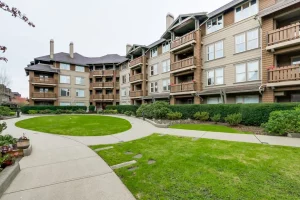An owner’s duty to maintain
Section 13(1)(b) of the Sectional Titles Schemes Management Act 8 of 2011 (the “STSM Act”) states that an owner must forthwith carry out all work that may be ordered by any competent authority in respect of his or her section, other than such work as may be required for the benefit of the building generally, and pay all charges, expenses and assessments that may be payable in respect of his or her section.
Section 13(1)© of the STSM Act states that an owner must repair and maintain his or her section in a state of good repair and, in respect of an exclusive use area, keep it in a clean and neat condition.
What does the legislation say in regard to the failure to maintain?
In terms of PMR 31(2) where a member, despite written demand by the body corporate, refuses or fails to:
(a) carry out work in respect of that member’s section ordered by a competent authority as required by section 13(1)(b) of the STSM Act; or
(b) repair or maintain a section owned by that member in a state of good repair as required by section 13(1)(c) of the STSM Act; and that failure threatens the stability of the common property, the safety of the building or otherwise materially prejudices the interests of the body corporate, its members or the occupiers of sections generally,
the body corporate must remedy the member’s failure and recover the reasonable cost of doing so from that member. In the case of an emergency, no demand or notice need be given to the member concerned.
Distinction of duty in regard to section and exclusive use area
This rule gives the trustees a way of enforcing the duties set out in section 13(1)(c) of the STSM Act. There is a distinction between an owner’s duties in regard to sections and those in regard to exclusive use area. Whereas under section 13(1)(c) of the STSM Act an owner must repair and maintain his or her section in a state of good repair, adequate maintenance of an exclusive use area is, in terms of this section, to keep that area neat and clean.
If an exclusive use area requires repairs or maintenance that go beyond keeping it clean and neat, the body corporate cannot demand that the owner who holds rights to that area must carry out the work. As with any other area of common property, the body corporate is obliged to carry out the work in terms of section 3(1)(r) of the STSM Act, but when those works are on an exclusive use area, the body corporate must recover the costs from the owner concerned in terms of the proviso to section 3(1)(c) of the STSM Act.
When should the trustees exercise this power?
The trustees should not exercise the body corporate’s powers under this rule unless to do so is clearly in the best interests of the body corporate and the owner concerned has been given an adequate opportunity to present his or her case. Particularly if the lack of maintenance does not involve the common property, trustees should ensure that the body corporate’s interests are prejudiced before they commit its resources to dealing with the issue.
Other options available to the trustees to enforce the owner’s duty to maintain?
Alternatively, the trustees can make an application to the Community Schemes Ombudsman (the “CSOS”). In terms of section 38 of the CSOS Act it is possible that any person may make an application to the CSOS if such person is a party to or affected materially by a dispute. The Body Corporate can therefore make an application to the CSOS to declare a dispute against the owners of sections who have failed to maintain their sections or exclusive use areas. An application must be made in the prescribed manner and as may be required by practice directives; lodged with an ombud; and accompanied by the prescribed application fee. The application must include statements setting out:
- the relief sought by the applicant, which relief must be within the scope of one or more of the prayers for the relief contemplated in section 39 of the CSOS Act;
- the name and address of each person the applicant considers to be affected materially by the application; and
- the grounds on which the relief is sought.
Should the trustees wish to have an owner carry out repairs to their section, or be refunded for repairs carried out they can declare a dispute against that owner at the CSOS. The appropriate prayer for relief or order is set out in section 39(6)(b) of the CSOS Act, which states that:
“An application made in terms of section 38 must include one or more of the following orders: In respect of works pertaining to private areas and common areas:
(a) an order requiring the association to have repairs and maintenance carried out;
(b) an order requiring the relevant person
(i) to carry out specified repairs, or have specified repairs made; or
(ii) to pay the applicant an amount fixed by the adjudicator as reimbursement for repairs carried out or to be carried out in respect of the property by the applicant.”
Should the trustees wish to have an owner take responsibility for their exclusive use area, they can declare a dispute against that owner at the CSOS. The appropriate prayer for relief or order is set out in section 39(6)(g) of the CSOS Act, which states that:
“An application made in terms of section 38 must include one or more of the following orders: In respect of works pertaining to private areas and common areas: an order obliging an owner or occupier to accept obligations in respect of a defined part of a common area.”
WRITTEN BY DR CARRYN DURHAM













